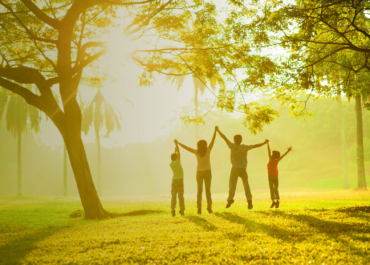by: Kaye Wiggins
Trailblazing businesses are suggesting that customers buy fewer of some products
For large corporations, 2016 looks reminiscent of 1991, the year Gerald Ratner, chief executive of the eponymous UK jeweller, disastrously described some of his products as “total crap”.
In January, Steve Howard, head of sustainability at Ikea, the furniture company, said the west may have reached “peak stuff”, a state he also described as “peak home furnishings” and “peak curtains”.
Then in April, Mars Food — whose brands include Dolmio and Uncle Ben’s — said some pasta sauces should be eaten only once a week because of high levels of salt, sugar or fat.
The comments came shortly after the beer and cider company Heineken launched an advert whose final scene showed a customer turning down a bottle of its lager.
Rather than Ratner-style gaffes, these were calculated interventions, in the name of sustainability and responsible business — and they are not seen as incompatible with growth. In part, they are an attempt to build consumers’ trust in brands. Fiona Dawson, president of Mars Food, says offering healthier alternatives and branding the higher-fat options as treats is about showing “integrity”.
Although consumers have long understood that the company’s confectionery is an indulgence, they have been “incredibly confused” about the nutritional value of products such as pasta sauces, says Ms Dawson. “Trust is a fragile thing with consumers,” she says. “I’m confident consumers will appreciate the transparency. If people could say, ‘You didn’t tell us this, why were you not open?’ that would be significantly worse.”
Jeremy Beadles, Heineken’s UK corporate relations director, says trust is more important now than ever — but also more difficult to build. “The internet creates a huge level of scrutiny and greater requirements of transparency,” he says.
Being open about potential downsides of products is also about planning for the long term, he says, adding that the advert in which the beer is waved away is part of a campaign to encourage responsible drinking. “We’d like our consumers to be around for a long time and enjoying our products for a long time,” he says. “Drinking to excess means they might drink more for a shorter period of time, but they will run into alcohol-related problems, or move to other people’s products.”
He says the 2008 financial crisis gave companies “more commercial permission” to balance short-term profitability with the longer-term sustainability of a business, “by which I mean commercial sustainability and the impact on the environment and how consumers view you”.
Ikea’s 2015 sustainability report indicates that the company has adopted this approach — and that in doing so, it has started asking itself some difficult questions about the drawbacks of its products. “In a world of limited resources, how can Ikea create a positive impact on the planet while [selling] low-cost products that customers can easily discard and replace?” it asks. “Isn’t Ikea actually fuelling the problem?”
The company’s response is to create a “circular” Ikea in which products “last as long as possible [and] are designed for easy upcycling and recycling”, Mr Howard writes in the report. Its Belgian stores have been running workshops on repairing damaged products in a bid to encourage customers not to see old furniture as “disposable and replaceable”.
The contexts are very different, says Charlotte West, marketplace director at Business in the Community (BITC), but they both show that sustainability and corporate social responsibility are no longer marginal activities, but are increasingly being placed at the centre of business plans.
“There’s a trend for companies to realise that to be sustainable they have to think about the impact of their core products and services,” she says. “Gone are the days when they would do piecemeal, ad hoc philanthropy in communities and ignore the key way they make their product and how that helps or hinders being a responsible business.”
Proponents of responsible business should be realistic, however. It is early days for this approach, which faces some serious challenges. “Responsible products and services are the last bastion of corporate responsibility,” Ms West concedes, “but I do now see companies starting to look at that … People are starting to think, we’ve got to get to the core issue here.”
Rocco Renaldi, secretary-general of the International Food and Beverage Alliance, which represents leading food and drinks firms, says those companies willing to start talking about the reduced consumption of some of their products, in some circumstances, are trailblazers.
“I don’t think this is something the industry as a whole has embraced,” he says. “I think we are seeing some of the leaders breaking off in this direction and experimenting [with] new ways of engaging with consumers. It takes some courage to do it, and it’s counterintuitive, but I think it makes long-term sense.”
Shareholders do not always see it that way, says BITC’s Ms West. “One challenge is that shareholders are still demanding short-term profit, and that can scare the horses.
“Bold statements about rethinking how you’re using products might well engage customers … but in the short term there’s a risk that some stakeholders might be alarmed by that new era of honesty. So it’s important that companies communicate with them.”

